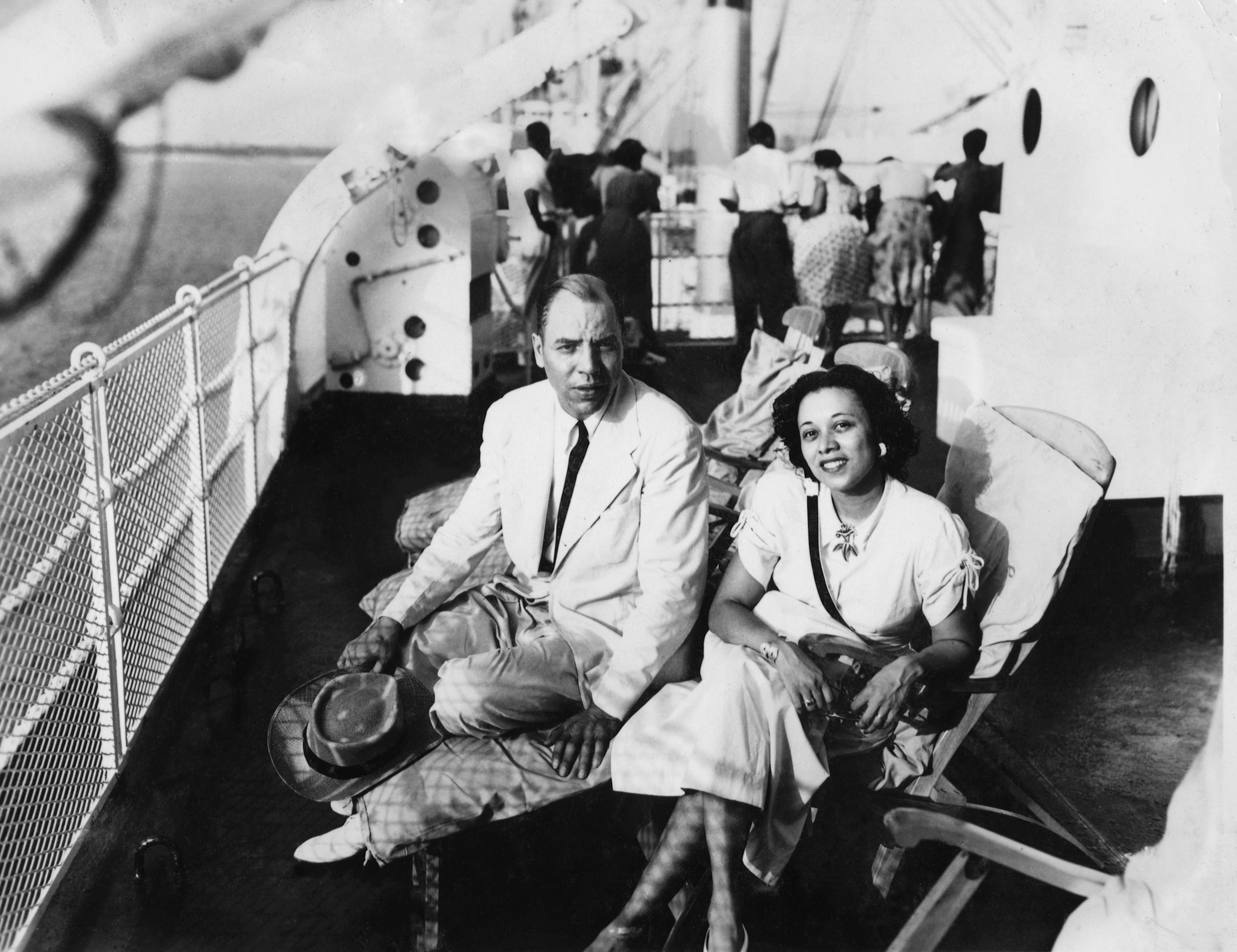
In the post-World War II era, when the United States and the Soviet Union faced off in a very heated cold war, Russia was able to gain valuable traction in its efforts to bring its influence to bear over emerging nations in Africa and elsewhere in the Third World simply by pointing to the institutionalized — and often violent — form of racism that was entrenched in the United States.
But three pioneering Black diplomats, including Edward R. Dudley, who later summered in Sag Harbor Hills, sought to change the face of American diplomacy from “pale, male and Yale” and transform the way the United States represented itself to the rest of the world and its majority nonwhite population.
Their story is the subject of “The American Diplomat,” a documentary directed by Leola Calzolai-Stewart, that will air as part of the PBS series “The American Experience,” at 9 p.m. on Tuesday, February 15.
The documentary includes as its subtitle, “First-class patriots abroad, second-class citizens at home,” a phrase that succinctly sums up the challenges all three men faced.
Dudley was first sent to Liberia as American minister in 1948. He became the first Black person to hold the rank of ambassador when President Harry S. Truman raised the status of the U.S. mission in Monrovia to an embassy in 1949 to mollify a long-time ally that was feeling neglected by the U.S.
The film also features segments on Terence Todman, who first battled segregation in the State Department during the Eisenhower administration before enjoying a lifetime career as ambassador to six different countries, and the journalist Carl Rowan, whom President John F. Kennedy appointed as deputy assistant secretary of state for public affairs before naming him ambassador to Finland. Rowan served under President Lyndon B. Johnson before returning to journalism.
Edward R. Dudley Jr., an attorney like his father before him, now lives in the family home in Sag Harbor Hills. His father died in 2005, and the son said he had been looking forward to having his father’s story told since Calzolai-Stewart started working on her documentary in 2016. He said growing up he did not know the full extent of his father’s accomplishments until his dad began talking about his career and made a series of tape recordings late in his life.
“Most kids try to outdo their fathers,” Dudley said. “In his case, it was pretty tough.”
The elder Dudley, a native of Roanoke, Virginia, set out to follow in the footsteps of his father, who was a dentist. But after a year of dental school, he realized the profession was not for him, so he went into teaching.
“He knows he’s a bright guy and he is getting half the money the white teachers are getting,” his son said, “so he decided to head to New York.”
Dudley said his father was a stage manager, even working with Orson Welles on a production of “Macbeth,” but was unable to land a job in theater outside of Harlem. He later worked in an uncle’s real estate business and attended law school at St. John’s University at night.
Dudley eventually became an attorney for the NAACP, joining Thurgood Marshall, who would become the first Black justice on the U.S. Supreme Court, to fight against segregation in southern schools.
When Truman was trying to find a Black diplomat to send to Liberia, he asked Marshall for his suggestions, and he recommended Dudley.
With Truman trailing badly in the polls in 1948, it looked to most like Dudley’s appointment as head of the Liberian mission would be a short-lived one, but Truman upset Thomas, and Dudley remained in Liberia, but now at the higher rank of ambassador.
Edward Dudley Jr. joined his parents two years into their stay. “It was like being in the country,” he recalled. “It was wonderful at the embassy, but my mother had to teach myself and all the other embassy kids.”
During his posting, the senior Dudley took note that Black people working in foreign service jobs were sent to one of three countries: The Azores, Liberia, or Madagascar. While the State Department had a policy of rotating career foreign service workers to different postings an average of once every two years, those opportunities were denied to Black people.
Dudley presented a list to his superiors showing that white people were given frequent opportunities for better postings while Black people languished in dead-end jobs and argued they deserved better.
The State Department soon sent three of Dudley’s co-workers to new assignments in Paris, Zurich, and Rome, but Dudley’s advocacy came at a cost.
“He ruined his chances of getting another ambassadorship,” his son said.
No matter. After leaving the State Department, Dudley practiced law and directed the NAACP’s Freedom Fund. He was appointed a judge in New York City and served as Manhattan borough president for three years.